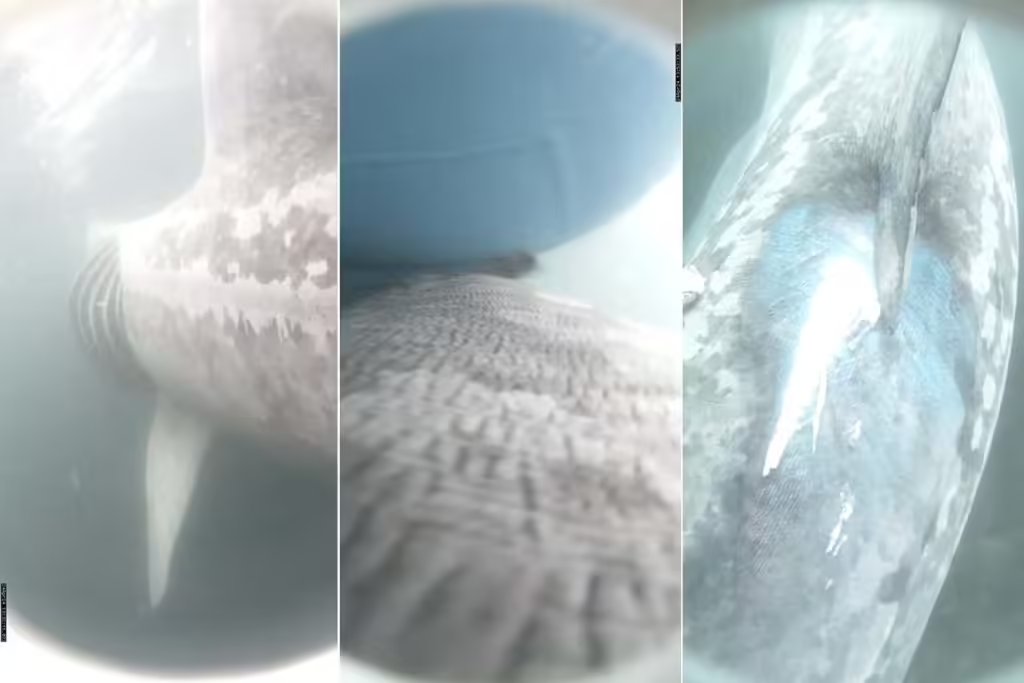This is the first documented collision between a boat and a basking shark, meaning that the researchers were either lucky to capture the footage or that the incidents are more common than previously thought. Experts say more monitoring is needed to quantify the problem, and that boats should be made to adhere to a code of conduct to keep the sharks safe.
Alexandra McInturff of Oregon State University and her colleagues studied a 7-metre-long female basking shark,Setohinus Maximus) on April 24 using a device that records movement in three axes: depth, position and video.
McInturff said that because the cost of the sensors means only one shark can be tagged at a time, and the sensors only stay on each shark for up to 12 hours, capturing a collision could be an indication of the frequency of incidents.
The video shows the shark feeding at the surface, then suddenly makes an evasive maneuver before colliding with the boat, after which it appears to panic and rapidly dives back into the water, only to come to a halt once it reaches the ocean floor.

A camera attached to a basking shark captures images before, during and after a ship collision
Oregon State University’s Big Fish Lab.
The tag automatically came off about seven hours after the impact, during which the shark did not feed or engage in normal behavior, the researchers noted. Video showed visible damage, paint marks, and abrasions on the shark’s skin, but no bleeding or open wounds. Researchers are not sure whether the shark has recovered.
The species is considered endangered worldwide, but congregates in large numbers off the coast of Ireland, where 28,000 hectares of land and sea off the coast of County Kerry were recently designated the country’s first national marine park. Some boats follow a voluntary code of conduct that limits their speed and approach to the sharks, but McInturff would like to see this made mandatory and for more extensive studies of basking sharks to properly quantify the problem.
“We’ve certainly seen evidence of boat strikes on sharks, and we’ve seen sharks that come back year after year with large propeller marks on their fins,” McInturff said. “This is our first glimpse into the fact that this may be much more prevalent than we thought.”
“I don’t want to demonise fishing boats, I think this is an honest mistake, but I do think we need to have an enforceable code of conduct when it comes to these animals,” McInturff said.
topic:

